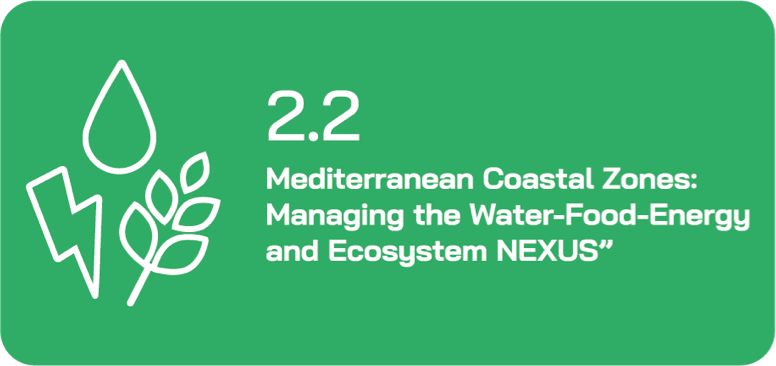GEF Focal areas
International Waters
Climate Change
Rationale
CONTACTS
UNEP/MAP
Mr. Mohamad Kayyal, MedProgramme Management Officer
E-mail: mohamad.kayyal@un.org
GWP-Med
Mr. Dimitris Faloutsos, Senior Programme Officer
Email: dimitris@gwpmed.org
According to assessments of the current state of fresh-water bodies and water-depended ecosystems in the Mediterranean, these are generally neglected from major development policies and plans, they remain under pressure and are under progressive degradation. Land-based pollution, growing population, urbanization and increasing tourism exert high pressures on both. It is also well understood that securing food and energy supply is a prime socio-economic concern in the region; the production of these resources strongly interact; often by adversely affecting water and ecosystems, including the ability to sustainably manage them. Low efficiencies in the management and use of water, land, energy, and ecosystems as well as changing consumption patterns constitute high pressures exerted especially at transboundary level. These are exacerbated by the effects of climatic change.
Child Project 2.2 aims to inform the policy and management paradigm of natural resources in the Mediterranean. It achieves that by introducing practical assessment and consultation approaches related to the (water-energy-food-ecosystems) Nexus approach striving to link these with investment development hence allowing the Water and Environmental policy and management approaches at the coastal and marine area to be informed by and/or inform the Energy and Agricultural decision making. It fosters sectoral integration resulting in improved design. Child Project 2.2, focusing on integration of Nexus sectors and approaches working in synergy with the Child Project 2.1 mutually assisting and reinforcing their aims and objectives. The specific objectives of CP2.2 is the balancing of competing water uses in priority coastal areas through water, food, energy, and ecosystems integrated governance, to enhance environmental security and sharing of benefits.

Components and outcomes
Institutional Strengthening: Identify the level of integration among Nexus sectors’ strategic documents in each country and this benefits the discussions among countries regarding the Nexus approach.
Addressing Nexus issues affecting priority coastal zones of the Mediterranean: Identify concrete steps and actions for the application of solutions identified through the Nexus assessments and dialogues as well as for the incorporation of the Nexus approach in national policy formulation and decision making for natural resources management.
Testing and upscaling Nexus solutions: Demonstrating tangibles and promoting replication, the screening of Nexus interventions’ options to match pilot Actions.
Consultation and outreach
Involved Countries











